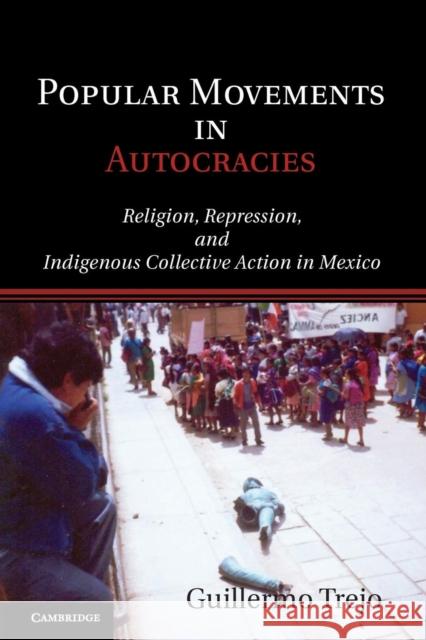Popular Movements in Autocracies: Religion, Repression, and Indigenous Collective Action in Mexico » książka
Popular Movements in Autocracies: Religion, Repression, and Indigenous Collective Action in Mexico
ISBN-13: 9781107680562 / Angielski / Miękka / 2014 / 334 str.
Popular Movements in Autocracies: Religion, Repression, and Indigenous Collective Action in Mexico
ISBN-13: 9781107680562 / Angielski / Miękka / 2014 / 334 str.
(netto: 193,32 VAT: 5%)
Najniższa cena z 30 dni: 125,88
ok. 16-18 dni roboczych
Bez gwarancji dostawy przed świętami
Darmowa dostawa!
This book presents a new explanation of the rise, development, and demise of social movements and cycles of protest in autocracies; the conditions under which protest becomes rebellion; and the impact of protest and rebellion on democratization. Focusing on poor indigenous villages in Mexico's authoritarian regime, the book shows that the spread of U.S. Protestant missionaries and the competition for indigenous souls motivated the Catholic Church to become a major promoter of indigenous movements for land redistribution and indigenous rights. It also shows that the introduction of government-controlled multiparty elections and the spread of competition for indigenous votes led Leftist opposition parties to become major sponsors of indigenous protest and identities. The expansion of electoral competition in some regions eventually led opposition parties to institutionalize protest, but the withdrawal of civil rights and political liberties and the threat of regime reversion in others gave rise to radicalization. The book explains why the outbreak of local rebellions, the transformation of indigenous claims for land into demands for ethnic autonomy and self-determination, and the threat of a generalized social uprising motivated national elites to democratize. Drawing on an original dataset of indigenous collective action and on extensive fieldwork, the empirical analysis of the book combines quantitative evidence with case studies and life histories.











